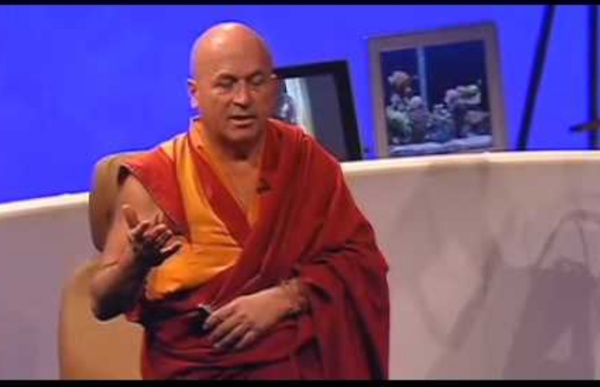



How Doing Nothing Can Help You Truly Live - Sharon Salzberg This article was originally published on The Huffington Post, May 4, 2010 When the retreat center I co-founded, the Insight Meditation Society, first opened, someone created a mock brochure describing a retreat there, with sayings like, “Come to IMS and have all the tea you could ever drink.” It also featured a wonderful made up motto for us: “It is better to do nothing than to waste your time.” I loved that motto, and thought it exemplified a lot about how meditation serves to help us unplug. Although that motto never made it into our official presentation, it actually was an accurate description of insight meditation, or mindfulness meditation. Basically, we enter into mindfulness practice so that we can learn how to do nothing and not waste our time, because wasting our time is wasting our lives. We come to meditation to learn how not to act out the habitual tendencies we generally live by, those actions that create suffering for ourselves and others, and get us into so much trouble.
Dr. Rick Hanson - Discover the Simple Method to More Joy &Less Stress posted on: February 1st, 2013 Wishing well? The Practice: Bless. Lately, I’ve been wondering what would be on my personal list of top five practices (all tied for first place). In these JOTs, so far I’ve written about two of my top practices: Meditate – Mindfulness, training attention, contemplation, concentration, absorption, non-ordinary consciousness, liberating insightTake in the good (in three chapters excerpted from my book, Just One Thing) – Recognize the brain’s negativity bias (Velcro for the bad, Teflon for the good), see good facts in the world and in yourself, be intimate with your experience, have and enrich and absorb positive experiences (turning mental states into neural traits, good moments into a great brain), let positive soothe and replace negative My third practice is bless, which means see what’s tender and beautiful, and wish well. Blessing is obviously good for others and the world, and that’s plenty reason to offer it. How? Do blessing deliberately.
frases Connecting the Dots Dec 6 2014 Connecting the Dots visual note by Nicki Hambleton using Adobe Ideas on iPad As a young child I loved Dot to Dots, joining the seemingly random patterns to reveal a recognisable image. I loved to try to work out what the dots were going to magically transform into by connecting them via advancing numbers. If you have never heard of or done a Dot to Dot before there is one below. Can you tell what this one is going to be? The idea of seeing the whole picture is something that has continued with me; from developing meaningful lessons to my “Big Idea” visual notes and it was whilst planning this current post that led me to recall a quote from Steve Jobs: “You can’t connect the dots looking forward; you can only connect them looking backwards. Despite the uniqueness of this quote, most people talk about looking to the future than the past, it rings true for so much that we do. Do we look back to the past or into the future? What Learning Matters? Learning Online Building a Tribe
Don’t Quarrel | Dr. Rick Hanson - Author of Buddha's Brain and Just One Thing posted on: November 30th, 2012 Who do you argue with?The Practice:Don’t quarrel.Why? It’s one thing to stick up for yourself and others. Similarly, it’s one thing to disagree with someone, even to the point of arguing – but it’s a different matter to get so caught up in your position that you lose sight of the bigger picture, including your relationship with the other person. You know you’re quarreling when you find yourself getting irritated, especially with that sticky feeling that you’re just not gonna quit until you’ve won. Quarrels happen both out in the open, between people, and inside the mind, like when you make a case in your head about another person or keep revisiting an argument to make your point more forcefully. However they happen, quarrels are stressful, activating the ancient fight-or-flight machinery in your brain and body: a bit of this won’t harm you, but a regular diet of quarreling is not good for your long-term physical and mental health. How?
The Pursuit of Happiness Welcome to the happiness frenzy, now peaking at a Barnes & Noble near you: In 2008 4,000 books were published on happiness, while a mere 50 books on the topic were released in 2000. The most popular class at Harvard University is about positive psychology , and at least 100 other universities offer similar courses. Happiness workshops for the post-collegiate set abound, and each day "life coaches" promising bliss to potential clients hang out their shingles. In the late 1990s, psychologist Martin Seligman of the University of Pennsylvania exhorted colleagues to scrutinize optimal moods with the same intensity with which they had for so long studied pathologies: We'd never learn about full human functioning unless we knew as much about mental wellness as we do about mental illness. A new generation of psychologists built up a respectable body of research on positive character traits and happiness-boosting practices. But all is not necessarily well. What is happiness?
Dix choses que les gens heureux font différemment des autres | Paula Davis-Laack Authentic Happiness | Authentic Happiness